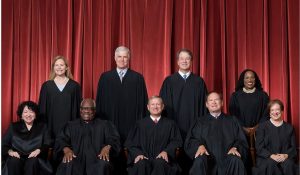Ghislaine Maxwell, the former associate of financier Jeffrey Epstein, continues to be the subject of scrutiny even while serving her sentence in a federal prison in Texas. Maxwell is serving a 20-year sentence for her role in Epstein’s international sex-trafficking operation, a conviction resulting from one of the most high-profile criminal cases of the past decade. While incarcerated, her communications and interactions with the Bureau of Prisons have come under examination, particularly in the context of disclosures by a federal employee regarding her correspondence and prison treatment.
The recent attention stems from the actions of Noella Turnage, a veteran employee of the Bureau of Prisons (BOP) who has worked with the agency since 2019. Turnage publicly identified herself as a whistleblower who previously provided Maxwell’s correspondence to members of the House Judiciary Committee. She stated that her initial communication with the committee occurred through her official Bureau of Prisons email address, in which she offered information she believed could be of interest to congressional oversight officials. Turnage emphasized that she did not initially specify the content of the materials she was providing, but her outreach led to rapid engagement by staff members in Representative Jamie Raskin’s office, who is the ranking Democrat on the House Judiciary Committee.
According to Turnage, she has participated in several follow-up calls regarding her disclosures and has only shared the information with the committee. She maintained that she has not shared the correspondence or documents with any other parties. Turnage’s disclosures focus on the contents of Maxwell’s communications and certain observations regarding her treatment while incarcerated at the federal facility.
Reports indicate that Maxwell’s correspondence was subject to direct handling by prison staff due to the high-profile nature of her case. Turnage described some of Maxwell’s outgoing messages as differing in formatting from other inmates’ correspondence, although the nature and purpose of these differences have not been independently verified. She stated that she printed some of Maxwell’s messages and reviewed them at her home before sharing relevant portions with the committee. These actions were framed by Turnage as part of her role in monitoring communications for compliance with prison regulations.
Maxwell’s interactions with the Department of Justice (DOJ) have also been a point of public reporting. According to sources familiar with the matter, Maxwell participated in a series of interviews with DOJ officials, including the Deputy Attorney General, during which she provided information about her knowledge of various individuals and events. Maxwell reportedly indicated that she had never witnessed Donald Trump engage in inappropriate behavior during any interactions she had with him. Reports note that Maxwell answered questions voluntarily during these interviews and did not invoke her Fifth Amendment rights.
The procedural context surrounding Turnage’s disclosures is also significant. She has stated that she faced challenges within the Bureau of Prisons, which she described as retaliatory, including reassignment to a position involving the monitoring of inmate telephone calls and emails. Turnage reported that her role in reviewing communications at the facility involved overseeing compliance with internal policies and regulations and ensuring that inmates’ activities, including calls and emails, did not violate institutional rules.
In describing Maxwell’s incarceration, Turnage emphasized that communications and correspondence from high-profile inmates are often treated differently for security and administrative reasons. She noted that Maxwell’s communications were handled with direct attention from supervisory staff, reflecting the heightened scrutiny associated with her case. These protocols are consistent with standard practices for inmates whose cases attract significant public attention or involve complex legal and security considerations.
While Turnage’s statements have drawn media attention, it is important to note that many of her observations remain based on her personal account and perspective. Independent verification of all specific details regarding the nature of Maxwell’s correspondence, any purported preferential treatment, or the exact content of private visits has not been publicly confirmed. As such, the publicly available information must be understood as a combination of verified facts and eyewitness accounts from an internal BOP employee.
The case highlights broader issues related to oversight, whistleblowing, and the treatment of high-profile inmates within federal correctional facilities. BOP policies establish procedures for monitoring inmate communications, ensuring compliance with rules, and safeguarding security, particularly when individuals have connections to complex criminal investigations or high-profile public figures. Turnage’s disclosures underscore the tensions that can arise when internal staff members perceive issues within these protocols and take steps to alert external oversight bodies.
From a legal and ethical perspective, Maxwell’s continued incarceration involves adherence to both her sentence and federal prison regulations. Her engagement with DOJ officials demonstrates ongoing cooperation in answering questions about events related to the broader investigation of Jeffrey Epstein’s activities. Maxwell’s reported statements about not witnessing misconduct by specific individuals clarify aspects of the historical record, contributing to the ongoing understanding of her knowledge and involvement.
Congressional oversight remains a key element in ensuring transparency and accountability within the federal prison system. Committees such as the House Judiciary Committee are responsible for reviewing policies, practices, and communications that impact the treatment of inmates, particularly those whose cases involve significant public interest. The involvement of staff members like Turnage illustrates the mechanisms through which internal reporting can be used to inform legislative oversight and highlight concerns about institutional practices.
Overall, the situation illustrates the complex interplay between the administration of justice, the management of high-profile inmates, and the role of whistleblowers in providing oversight information. While Maxwell serves her sentence, the continued review of her correspondence and interactions within the prison system offers insights into institutional practices, compliance with regulations, and the accountability mechanisms available to both internal staff and external oversight bodies.
It is essential to distinguish between verified factual elements and personal accounts when evaluating the information about Maxwell’s incarceration. Verified facts include her sentence, her cooperation with DOJ officials, and the role of Turnage as a BOP employee who provided information to Congress. Personal accounts from Turnage describe her observations of communications handling and certain logistical aspects of Maxwell’s confinement, but these remain unverified beyond her testimony.
The broader implications of this case extend beyond Maxwell herself. They highlight the importance of internal reporting mechanisms within correctional institutions, the oversight responsibilities of congressional committees, and the need for transparency in handling the communications of inmates involved in complex criminal networks. Turnage’s disclosures, in combination with public reporting, contribute to a more nuanced understanding of how federal prisons manage high-profile cases while balancing security, administrative requirements, and oversight obligations.
In conclusion, Ghislaine Maxwell’s continued incarceration at a federal facility in Texas is accompanied by ongoing scrutiny from internal staff, oversight committees, and the public. Verified reports confirm her sentence, her cooperation with DOJ investigations, and the involvement of a Bureau of Prisons employee in providing correspondence to Congress. While aspects of her treatment and certain operational practices remain based on eyewitness accounts and have not been independently confirmed, these reports contribute to a broader understanding of institutional operations, oversight mechanisms, and the ethical considerations involved in managing high-profile inmates. The unfolding situation underscores the intersection of criminal justice, institutional accountability, and legislative oversight in the administration of federal prisons.

Emily Johnson is a critically acclaimed essayist and novelist known for her thought-provoking works centered on feminism, women’s rights, and modern relationships. Born and raised in Portland, Oregon, Emily grew up with a deep love of books, often spending her afternoons at her local library. She went on to study literature and gender studies at UCLA, where she became deeply involved in activism and began publishing essays in campus journals. Her debut essay collection, Voices Unbound, struck a chord with readers nationwide for its fearless exploration of gender dynamics, identity, and the challenges faced by women in contemporary society. Emily later transitioned into fiction, writing novels that balance compelling storytelling with social commentary. Her protagonists are often strong, multidimensional women navigating love, ambition, and the struggles of everyday life, making her a favorite among readers who crave authentic, relatable narratives. Critics praise her ability to merge personal intimacy with universal themes. Off the page, Emily is an advocate for women in publishing, leading workshops that encourage young female writers to embrace their voices. She lives in Seattle with her partner and two rescue cats, where she continues to write, teach, and inspire a new generation of storytellers.









